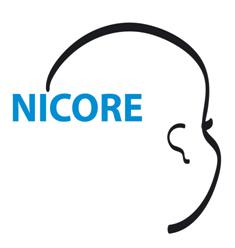NICORE
 Neonatal Intensive Care Outcomes Research and Evaluation (NICORE) has been routinely collecting data on neonatal units in Northern Ireland since 1994. We use this data to monitor a number of key quality markers and to ensure consistently high standards of care so that all babies admitted to a neonatal unit in Northern Ireland will benefit. The NICORE database is an important source of information which allows:
Neonatal Intensive Care Outcomes Research and Evaluation (NICORE) has been routinely collecting data on neonatal units in Northern Ireland since 1994. We use this data to monitor a number of key quality markers and to ensure consistently high standards of care so that all babies admitted to a neonatal unit in Northern Ireland will benefit. The NICORE database is an important source of information which allows:
- neonatal teams to reflect on the standard of care and make the necessary changes to improve quality of care;
- neonatal teams to accurately inform parents regarding short and long-term outcomes for babies;
- neonatal teams to share good practice and compare performance with other neonatal units in Northern Ireland, the Republic of Ireland, the UK and internationally;
- HSC providers to make informed decisions about the future needs of sick babies in Northern Ireland
- researchers to carry out important studies and to contribute to existing knowledge.
Each year, approximately 2,000 newborn babies in Northern Ireland will need extra care and will be admitted to a neonatal unit. Most of these will need intensive or high dependency care.
Most babies in a neonatal unit have been born prematurely, are too small or have internal organs that have not formed properly. They all have complex needs and each baby must receive the right care at the right time, based on sound medical advice.
When your baby is admitted to a neonatal unit, details are coded using the mother’s and the baby’s unique references recorded onto a system that are confidential and can be accessed only by the health professionals caring for your baby. This includes details about your baby’s birth, birth weight, conditions, treatment, etc.
The activities of NICORE are overseen by a steering group which is comprised of representatives from a range of health professions involved in the care of your baby and from Queen’s University, genetics, ophthalmology and public health.
This project is a joint initiative between the Public Health Agency and Queen’s University, Belfast, and is funded by the Department of Health, Social Services and Public Safety (DHSSPS).
